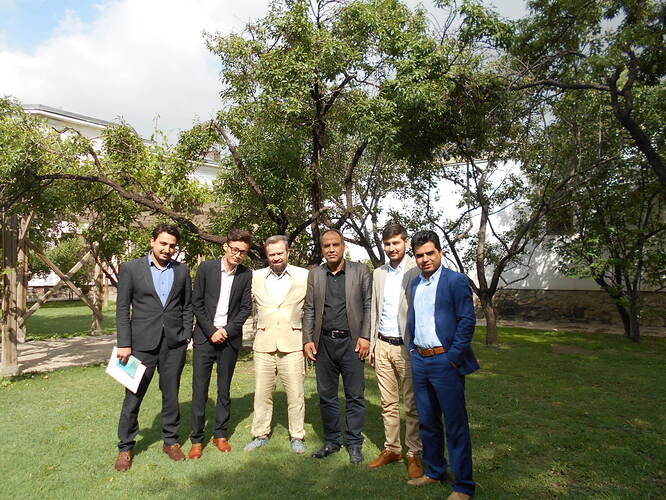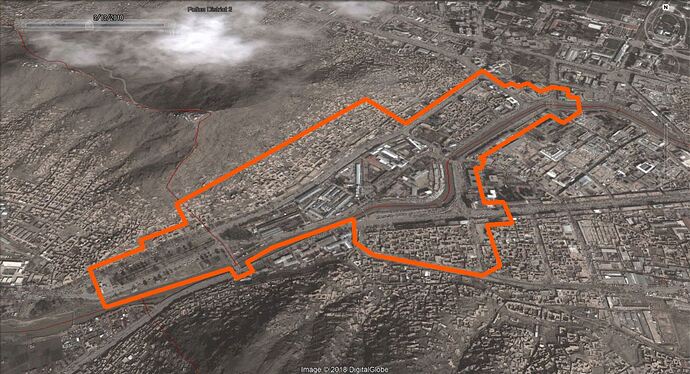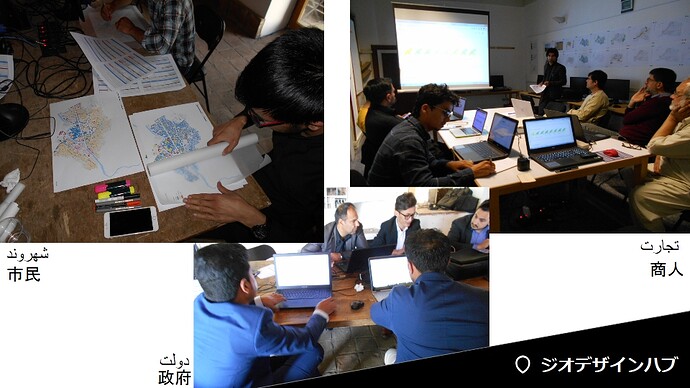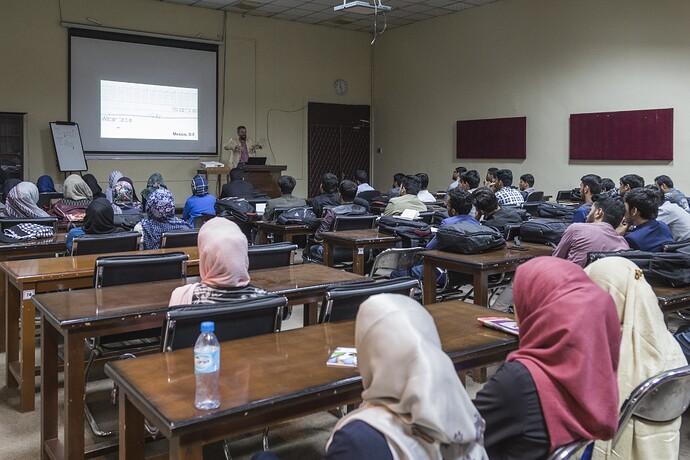Introduction
In the Spring of 2018 we were invited by the Aga Khan Trust for Culture, Kabul (AKTC, Kabul) to develop a series of workshops, lectures and events with the goal of introducing the geodesign concept and methodology as a tool to aid the work of development and preservation. The Aga Khan Development Network (AKDN) and the AKTC, Kabul practice a unique approach to their work of restoring the cultural heritage of Afghanistan while integrating the contemporary society into the project of revitalization of the economy, society and culture of the city of Kabul and its greater region. Geodesign complements this ethos by complementarily weaving and knitting various disciplines in the interest of solving problems in the geospatial dimension. The visit was to include three workshops and a lecture to the students and faculty of the Department of Architecture at Kabul University.
Background
AKTC, Kabul is currently engaged in a development project in the historic downtown of the city (Kabul River Transformation - KARIT). The project brief follows:
Project Brief
- Objective - The overarching goal of the KARIT project is to contribute to the development and stabilization of the urban fabric of Kabul. In light of social crisis, rising population and a breakdown in security, this project aims to prepare ground for a brighter urban future while preserving the best of Afghan cultural and historical heritage.
- Systems - Green Infrastructure (HISCUL)
Governance (GOV)
Recreation (REC)
Green Infrastructure (GI)
Religious/Educational (REDU)
Social Welfare (SEWF)
Commercial (COM)
Active Transportation (ATRANS)
Road Transportation (RTRANS)
Utilities (UTIL) - Study Area - Kabul City, In the vicinity of the Kabul River stradling districts 1 & 2 and the historic ‘Machine Khana’ Zone
- Constraints - The project timeline for study, assessment, design, development and construction is a brief and ambitious two-year window.
- Design Targets - The project seeks to accomplish six objectives in order to achieve this goal: The Consolidation and Rehabilitation of Commerce, The Modernization and Reuse of the Machine Khana Complex, The Upgrade and Improvement of Access, Development of Landscaping and Public Space, The Development of Public Infrastructure and The Establishment of Comprehensive Vocational Technical and Trade Training.
Geodesign Workshops
Three training workshops were conducted for a total of 32 participants. The first consisted of AKTC, Kabul’s junior staff. The second was an invitational workshop with invitees consisting of members of the Ministry of Development and Housing and CRIDA (Capital Region Independent Development Authority). The final workshop participants’ roster consisted of officers and senior staff of AKTC, Kabul. All three workshops utilized the KARIT project as the Area of Interest within the geodesignhub software.
Lecture
More than 70 students, lecturers and faculty attended a lecture titled “Geodesign: A Systematic Means to Create and Analyze a Design”. Most of the students were 4th and 5th year architecture program candidates. A one hour and forty-five minute lecture followed by questions and short discussion was the event’s duration.
Outcomes
The workshops’ learning objectives were accomplished and the designs and data generated are now accessible worldwide to authorized users through the geodesignhub.com platform. If AKTC, Kabul elects, they could make the data available. Participants were able to make good use of the software, and to generate some new ideas. This process was valuable in
that it generated new ways of looking at the problems that they face everyday. The staff of MUDH expressed interest in generating real geodesign projects to support the current projects that are ongoing at their agencies. Participants registered concern regarding the timeliness of source data, particularly satellite imagery, and of the efficiency of the system maps production process.
For many, working in a collaborative, multi-disciplinary fashion was of great value and importance and their first exposure to the geodesign process left a lasting impression.
Program Organizers
- Dr. Hrishikesh Ballal - Managing Director of Geodesign Hub Pvt. Ltd.
- Arturo Moreno - MPS Geodesign, Pennsylvania State University
Founder, Moreno Geodesign Consulting
Contact
For more information, please write to osaka_ali@protonmail.ch
Acknowledgements
Moreno Geodesign Consulting (MGC) is indebted to the Aga Khan Trust for Culture, Kabul for the opportunity to discover the remarkable culture, history and people of Afghanistan and to introduce geodesign to them. MGC would like to express thanks to Geodesignhub, Ltd., without whose support this program would not have been possible. Special thanks to Mustafa Nouri, Principal Project Manager, KARIT and especially to Ajmal Maiwandi, CEO, AKTC, Kabul. Finally, thanks to Abel Tokito Hassan Moreno for his kind patience.
Reference
Presentation slides from a lecture on the KARIT Geodesign project given at Okayama University in November, 2018 can be viewed here.



